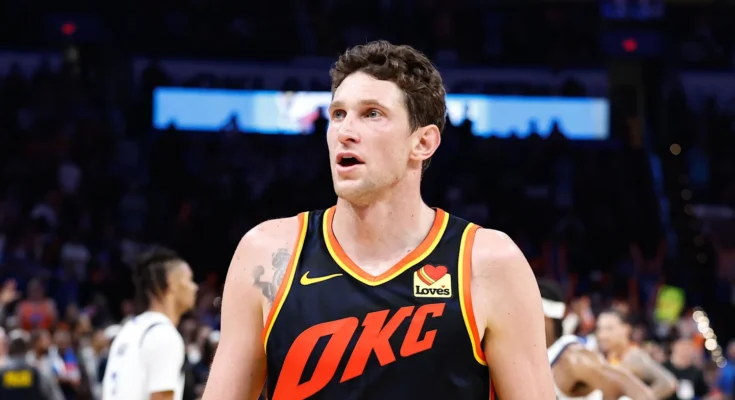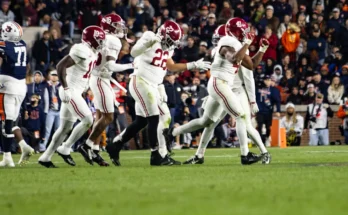Phoenix Suns Officially Announce Entire New Coaching Staff Ahead of 2025 Season, Ushering In Bold Era Under Mike Budenholzer
The Phoenix Suns have officially announced their full coaching staff for the upcoming 2025-26 NBA season, cementing a new era under recently appointed head coach Mike Budenholzer. The former Milwaukee Bucks and Atlanta Hawks coach was hired earlier this offseason to replace Frank Vogel, whose tenure lasted just one year after the Suns’ disappointing first-round playoff exit. With Budenholzer now fully in charge, the Suns are aiming to reset their culture, refine their identity, and deliver results that align with the talent-heavy roster they’ve assembled over the past two years.
The Suns’ decision to overhaul their coaching staff speaks volumes about the urgency and pressure the franchise is operating under. Following consecutive playoff disappointments, despite boasting a trio of All-Star talents in Devin Booker, Kevin Durant, and Bradley Beal, the front office clearly concluded that systemic changes were necessary. Instead of tweaking around the edges, the Suns chose a top-down reset, starting with a proven head coach and surrounding him with a group of assistants who bring championship experience, player development prowess, and tactical acumen.
Budenholzer’s arrival was seen as a high-floor move by NBA insiders. With a championship on his résumé from the 2021 season in Milwaukee, Budenholzer has consistently led 50-win teams and instilled structured systems centered on ball movement, floor spacing, and elite defensive execution. Known for his calm demeanor and analytical approach, Budenholzer will now be tasked with molding a roster that is top-heavy, short on depth, and dealing with financial limitations under the new collective bargaining agreement.
To that end, the composition of his staff will be critical—not just for game-day strategy, but for day-to-day development, role definition, and establishing a culture of accountability. The Suns’ official release revealed a blend of experience and fresh energy, with assistant coaches who have held prominent roles around the league, including former head coaches, respected development experts, and innovative thinkers.
Among the notable additions is Chad Forcier, a long-time Budenholzer lieutenant who served under him in both Atlanta and Milwaukee. Forcier is known around the league for his work ethic, deep understanding of player development, and meticulous approach to skill-building. He was part of the Spurs’ coaching staff during their 2014 championship run and is widely credited for helping shape the games of stars like Giannis Antetokounmpo and Khris Middleton. His inclusion signals that the Suns are investing in internal improvement, especially for younger players like Grayson Allen, Bol Bol, and whoever fills out the back end of the rotation.
Another key addition is Vince Legarza, who has spent time with the Utah Jazz and Minnesota Timberwolves and is recognized for his interpersonal skills and ability to connect with players. In an NBA where relationships matter just as much as schemes, Legarza provides the emotional intelligence and communication style that can help manage the personalities of Phoenix’s high-profile roster. His focus is expected to center on frontcourt development and team dynamics, helping unify a locker room that at times felt disjointed during the previous season.
Adding to the staff is Patrick St. Andrews, another familiar face from Budenholzer’s Milwaukee tenure. St. Andrews was often credited with his behind-the-scenes impact in game planning and video analysis. While not a household name, he played a key role in Milwaukee’s adjustments during the 2021 playoff run. His sharp mind and work ethic will likely be used for scouting, opponent analysis, and ensuring the Suns are prepared strategically for every matchup.
Joe Prunty, who brings more than two decades of NBA coaching experience and a brief stint as an interim head coach, will serve as one of the lead assistants. Prunty’s reputation as a steady, knowledgeable presence adds another layer of experience to the bench. He’s coached under legends like Gregg Popovich and served in multiple playoff environments. His role will be pivotal in refining in-game execution, especially during critical late-game situations—something the Suns struggled with last year.
Beyond the core assistants, the Suns also brought in several specialists who will focus on player health, conditioning, and performance optimization. Given the injury history of key players—particularly Beal and Durant—this aspect of the coaching infrastructure is essential. Budenholzer is known for emphasizing player availability and conditioning, often managing minutes conservatively during the regular season to preserve energy for the playoffs. His staff will likely carry out a similar philosophy in Phoenix, with the hope that a healthier, more balanced approach can lead to better postseason results.
While the staff is deep in experience, it also brings a fresh mindset. The Suns have reportedly emphasized modern basketball principles: versatile defense, motion-based offense, and shooting efficiency. The assistants chosen are believed to be aligned with Budenholzer’s vision of building a structured, disciplined, but adaptable team—one that doesn’t rely solely on isolation scoring from stars but emphasizes ball and player movement.
One challenge facing the new staff will be implementing this vision with a roster that was constructed under a different philosophy. The Suns’ current core of Booker, Durant, and Beal all prefer to operate in mid-range and isolation-heavy actions. Budenholzer’s offensive system historically leans toward pick-and-rolls, drive-and-kicks, and spacing for three-point shooting. Reconciling the preferences of his star players with the system he wants to implement will be one of the coaching staff’s early and most critical tests.
The other major focus will be on defense. Under Frank Vogel—who was known for his defensive coaching pedigree—the Suns were surprisingly average defensively and failed to generate consistent stops in big moments. Budenholzer’s teams have typically emphasized strong rim protection and rebounding, with the likes of Brook Lopez and Giannis anchoring the interior. With Jusuf Nurkić as the current starting center, the Suns will need to decide whether to lean into drop coverage or explore other defensive schemes. The staff’s ability to maximize Nurkić while covering for his lack of mobility will be crucial, as will their work with perimeter defenders like Josh Okogie and Grayson Allen to improve point-of-attack resistance.
Another aspect to watch will be how the staff develops young and unproven talent. In recent years, the Suns have been so star-focused that young players rarely received consistent opportunities. That may need to change under Budenholzer, especially as the second tax apron limits Phoenix’s ability to build depth through free agency. Internal growth will be more important than ever, and the new coaching staff must prioritize developing rotation players from within. Whether that means more minutes for Nassir Little, Bol Bol, or future two-way signees, the staff’s teaching ability will directly affect the Suns’ depth and long-term flexibility.
With training camp around the corner, the Suns’ new coaching staff has already begun conducting player meetings, designing training schedules, and collaborating with the front office on preseason strategies. According to reports, Budenholzer has been in frequent communication with Booker and Durant, outlining expectations and setting the tone for a more detail-oriented, accountable culture.
The staff’s emphasis on preparation and adaptability could be the exact remedy to the Suns’ recent inconsistencies. While talent is abundant on the roster, there’s been a noticeable lack of cohesion during crunch time. Budenholzer and his assistants will be expected to correct that quickly, instilling not only a system but a level of trust and buy-in from players who’ve experienced frequent coaching changes and stylistic shifts over the last few seasons.
Phoenix’s window to contend is now. With Durant aging and the team boxed in financially, there’s no time for slow transitions or learning curves. The new coaching staff doesn’t have the luxury of patience; results will be expected immediately. That urgency is reflected in the caliber and makeup of the staff—professionals who know the stakes, understand the grind of a long season, and are prepared to get the most out of this roster.
There’s cautious optimism in Phoenix. After the turbulence of last season, a new head coach and a fully revamped staff bring hope for stability, structure, and sustained success. Whether this group can deliver on those expectations remains to be seen, but for now, the foundation has been laid. The Phoenix Suns have made their coaching vision clear—one built on discipline, experience, and championship ambition. The rest will depend on how well the staff, players, and organization come together in what promises to be a defining season for the franchise.



